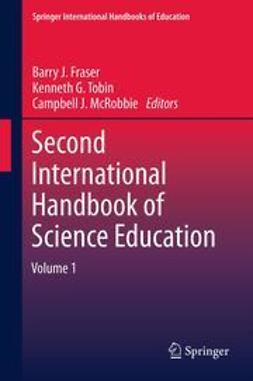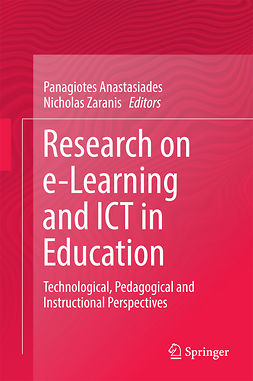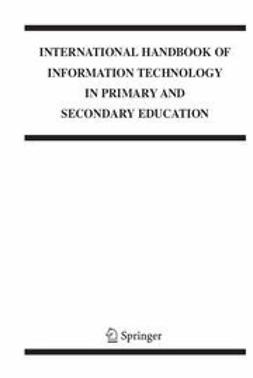Gupta-Bhowon, Minu
Chemistry Education in the ICT Age
2. Chemistry and Chemical Education as a Bridge to Peace
Z. M. Lerman
3. “Jeopardy” in the Inorganic Classroom - Teaching Descriptive Chemistry Using a Television Game Show Format
J. Van Houten
4. Teaching Thermodynamic Relations Using a Story and Two-Dimensional Cartesian Coordinate System
Y.H. Chung
5. Heralding Calamity of Global Warming and Chemistry Role Through a Chorus
Y.H. Chung
6. Using the Arts and Computer Animation to Make Chemistry Accessible to All in the Twenty-First Century
Z.M. Lerman, D. Morton
7. Chemical Potential from the Beginning
R. Rüffler, G. Job
8. The Chemistry of Carbenes and Their Metal Complexes: An Undergraduate Laboratory Experiment
J.P. Canal, T. Ramnial
9. SATL, Learning Theory, and the Physiology of Learning
J.J. Lagowski
10. A Rubric to Guide Curriculum Development of Undergraduate Chemistry Laboratory: Focus on Inquiry
L.B. Bruck, S.L. Bretz, M.H. Towns
11. Investigating the Effectiveness of Computer Simulations in the Teaching of “Atomic Structure and Bonding”
S. Abdoolatiff, F.B. Narod
12. Networked Learning for an Online Coastal Zone Management Module
R.T. Ramessur
13. Moodle in Teacher Training
M. Miranowicz
14. SIA@SFU (Science in Action at Simon Fraser University)
S. Lavieri, J.P. Canal
15. Context and Chemistry Going Dutch? The Development of a Context-Based Curriculum in the Netherlands
J.H. Apotheker
16. Using New Technologies in Teaching Chemistry
H. Gulińska
17. The Effectiveness of Lecture Demonstrations to Enhance Learning of Chemistry
A. Rade
18. The Use of Writing-Intensive Learning as a Communication and Learning Tool in an Inorganic Chemistry Laboratory Course
H. Jalali, L. Hanlan, J.P. Canal
19. A Study on the Use of Concept Maps in the Teaching of ‘Chemical Periodicity’ at the Upper Secondary Level
A. Douquia, F.B. Narod
20. Non-linear POGIL for Developing Cumulative Skills and Multidisciplinary Chemical Concepts for Non-science and Chemistry Majors
R.T. Criasia, A.B. Lees, M.T. Mongelli, Y.-G.K. Shin, H. Stokes-Huby, D.E. Vitale
21. Teaching Physical Chemistry in Disadvantaged Contexts: Challenges, Strategies and Responses
L. Mammino
22. Reduction in Chemical Oxygen Demand and Color Intensity of Dye-Contaminated Wastewaster Using Visible Irradiation and ZnO-Assisted Advanced Oxidation Process: A Green Laboratory Experiment for Wastewater Treatment
B. Pare, P. Singh
23. Designing Effective E-Learning Environments - Should We Use Still Pictures, Animations or Interactivity?
S. Schmid, A. Yeung, A.V. George, M.M. King
24. Students’ Learning Styles and Academic Performance
S. Schmid, A. Yeung, J.R. Read
25. Using Two-Dimensional Molecular Drawings to Evaluate Teachers’ Conceptual Change in Chemistry
E. Steenberg, J.D. Bradley
26. Using the Personalization Hypothesis to Design E-Learning Environments
A. Yeung, S. Schmid, A.V. George, M.M. King
27. Calculation of Potential Energy in the Reaction of “F + HCl → HF + Cl” and its Visualization
A. Ikuo, H. Nagashima, Y. Yoshinaga, H. Ogawa
28. Indian Chemistry Olympiad Programme: Outcomes of the Decade
S. Ladage
29. Indian National Chemistry Olympiad Examination: Implications for Teaching and Learning of Chemistry
S. Ladage, S. Narvekar
30. Laboratory Courses in Organic Chemistry: A Case Study
L. Ravishankar, S. Ladage
31. Green Chemistry Initiatives Across the Undergraduate Curriculum
H. Traore
32. Education About the Use of Quantities, Units and Symbols in Chemistry: The Earlier the Better
J. Stohner, M. Quack
33. ICT and Reporting Skills in Chemical Engineering Education
J. C. Reijenga, M. M. Roeling
34. Linear Free Energy Relationships (LFER) as a One-Hour Classroom Lecture for Postgraduate Students: Correlation of the Nature of the Transition States
V. Jagannadham
35. What Makes a Good Laboratory Learning Exercise? Student Feedback from the ACELL Project
A. V. George, J. R. Read, S. C. Barrie, R. B. Bucat, M. A. Buntine, G. T. Crisp, I. M. Jamie, S. H. Kable
36. Chemistry Education for Socially Responsible and Sustainable Development: What are the Challenges for a Developing Country?
V. Hunma
37. Associative Learning Through Art Activities
Y. Dahlman, M. Boman
38. Self-Reflection on Professional Competences in the Master Program for Chemical Engineers
J. Reijenga, E. Vinken
39. The NAWIlino-Box – A Science Exploration
Kit and Its Use in Practical Teacher Training
L. Bröll, J. Friedrich, M. Oetken
40. Assessment of Mercury Pollution at Mare Chicose Landfill in Mauritius
V. Dookhun, K. Mahadeo
Avainsanat: Education, Science Education
- Tekijä(t)
- Gupta-Bhowon, Minu
- Jhaumeer-Laulloo, Sabina
- Wah, Henri Li Kam
- Ramasami, Ponnadurai
- Julkaisija
- Springer
- Julkaisuvuosi
- 2009
- Kieli
- en
- Painos
- 1
- Sivumäärä
- 8 sivua
- Kategoria
- Kasvatus, opetus
- Tiedostomuoto
- E-kirja
- eISBN (PDF)
- 9781402097324











